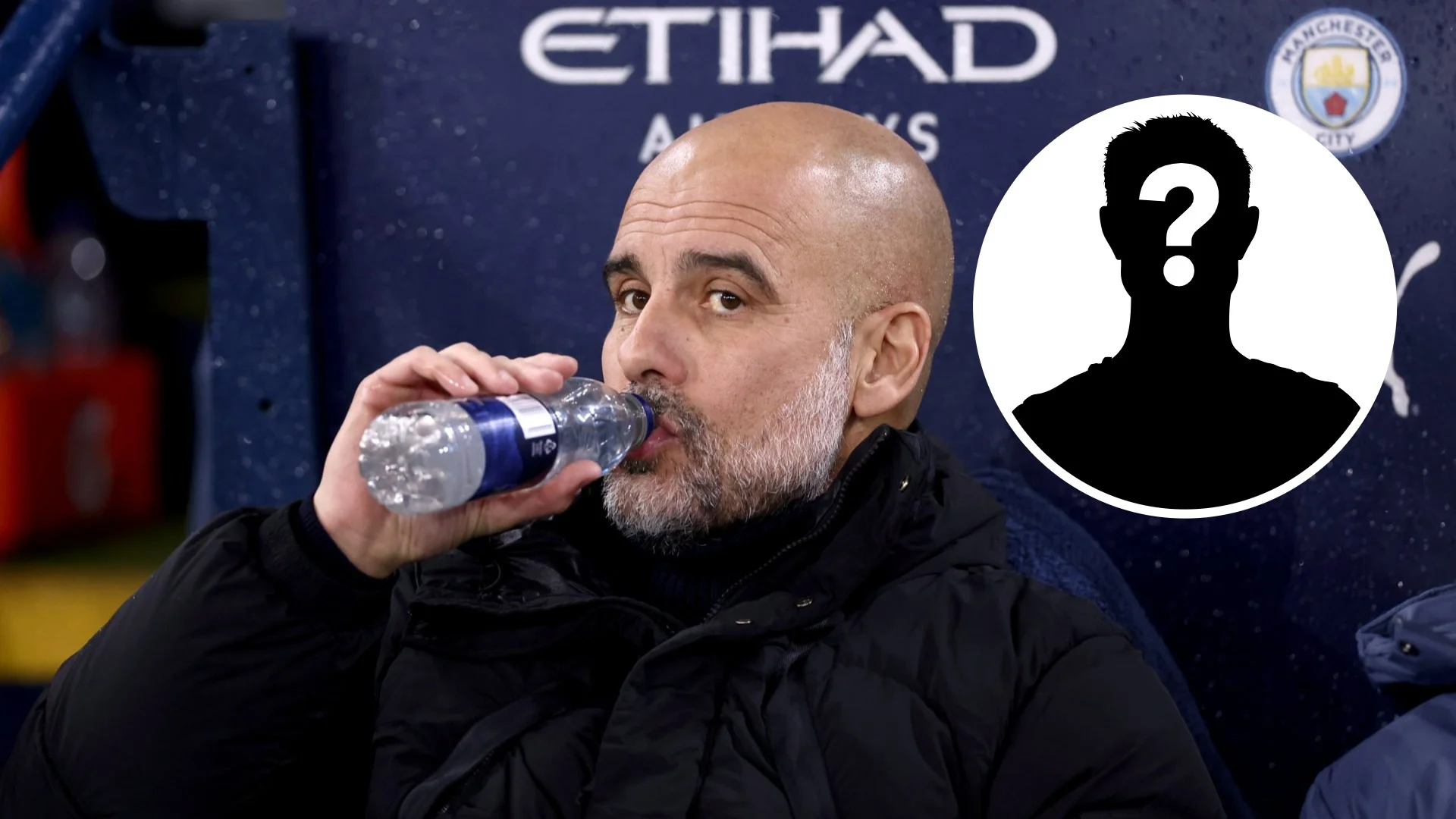Pep Guardiola reportedly wants Wesley at Manchester City

Manchester City’s squad construction under Pep Guardiola has been methodical, strategic, and largely successful. The Catalan tactician has built a team that can compete on multiple fronts, with quality players in nearly every position. However, as the club continues to evolve and adapt to the ever-changing landscape of modern football, one position stands out as requiring immediate attention: right-back.
The current Manchester City squad, while boasting incredible depth and quality across most positions, reveals a notable vulnerability in the right-back position. This isn’t necessarily a criticism of the existing options, but rather an acknowledgment that the squad would benefit significantly from a specialist right-back who can provide the consistency, attacking threat, and defensive solidity that Guardiola’s system demands.
The right-back position in Guardiola’s tactical framework is crucial to the team’s overall functionality. It requires a player who can seamlessly transition between defensive responsibilities and attacking contributions, someone who can provide width in the final third while maintaining positional discipline when the team is out of possession. The current options at City’s disposal, while talented, may not fully satisfy these specific requirements.
Evaluating Current Options: Nunes and Lewis
Matheus Nunes and Rico Lewis represent the current solutions to Manchester City’s right-back situation, and both players bring unique qualities to the table. However, their limitations highlight why the position requires reinforcement.
Matheus Nunes arrived at Manchester City with considerable promise, having demonstrated his versatility and technical ability in previous clubs. His comfort on the ball and ability to carry possession forward align well with Guardiola’s possession-based philosophy. However, Nunes is naturally more of a central midfielder who has been adapted to play in various positions, including right-back. This adaptation, while showcasing his versatility, also means he may lack the specialized skills and instincts that a natural full-back would possess.
The Portuguese player’s defensive positioning and understanding of the nuances of full-back play are still developing. While he can certainly fulfill the role when called upon, his performances in this position often reveal the compromises that come with playing a player out of his preferred position. His attacking contributions from the right flank, while competent, may not match the consistent threat that a specialist right-back could provide.
Rico Lewis, on the other hand, represents the future of Manchester City’s academy production. The young Englishman has shown tremendous promise and has already demonstrated his ability to compete at the highest level. His technical skills, intelligence, and understanding of Guardiola’s system are impressive for a player of his age. Lewis’s ability to invert into midfield when City are in possession – a hallmark of Guardiola’s tactical approach – shows his tactical maturity and adaptability.
However, Lewis’s youth and relative inexperience at the highest level mean that he may not yet be ready to be the primary solution to City’s right-back needs. While his development trajectory is extremely promising, relying solely on him in such a crucial position could place undue pressure on his development and potentially expose tactical vulnerabilities in important matches.
The fact that both players are being asked to fill a position that isn’t necessarily their natural habitat underscores the need for Manchester City to invest in a specialist right-back who can provide the specific skill set that the position demands in Guardiola’s system.
The Wesley Option: Potential and Promise
The links between Manchester City and Flamengo’s Wesley represent an intriguing possibility for the club’s right-back situation. Wesley, a Brazilian international, embodies many of the qualities that modern full-backs require to succeed at the highest level. His profile suggests a player who could thrive in Guardiola’s system, given the right development and integration period.
Wesley’s attacking prowess from the right-back position is perhaps his most notable attribute. In Brazilian football, where flair and attacking contribution from full-backs are highly valued, Wesley has consistently demonstrated his ability to impact games in the final third. His pace allows him to make overlapping runs that stretch opposing defenses, creating space for teammates and providing an additional attacking dimension to his team’s play.
The Brazilian’s physical attributes are equally impressive. His strength allows him to compete effectively in duels, both in defensive situations and when driving forward with the ball. This physical robustness would be particularly valuable in the Premier League, where the intensity and physicality of the game can often overwhelm players who aren’t adequately prepared for the demands of English football.
From a defensive perspective, Wesley possesses the raw materials needed to develop into a top-class defender. His speed allows him to recover from potentially compromising positions, while his strength enables him to compete effectively against Premier League wingers. However, it’s important to note that these are foundational attributes that would need to be refined and adapted to the specific demands of Guardiola’s defensive system.
The tactical intelligence required to succeed in Guardiola’s system is perhaps the most crucial factor in Wesley’s potential success at Manchester City. The manager’s approach requires full-backs to understand when to provide width, when to invert into midfield, and when to maintain defensive shape. This tactical sophistication typically develops through experience and coaching, suggesting that Wesley would need time to fully grasp these nuances.
Wesley’s international experience with Brazil adds another layer to his profile. Playing for the Brazilian national team, even at a young age, suggests that he possesses the mentality and quality needed to compete at the highest level. This international experience could prove valuable in helping him adapt to the pressures and expectations that come with playing for a club like Manchester City.
However, the lack of Premier League experience represents a significant consideration. The English top flight presents unique challenges that differ from other leagues around the world. The pace of the game, the physical demands, and the tactical sophistication of opposing teams can often overwhelm even talented players during their initial adaptation period.
The Financial Dynamics: Roma’s Interest and Valuation Challenges
The reported interest from Roma in Wesley adds a competitive element to Manchester City’s pursuit of the Brazilian. According to reports from Terra, Roma have already agreed personal terms with Wesley, demonstrating the player’s willingness to move to European football. However, the financial aspects of the potential transfer reveal interesting dynamics that could influence the eventual outcome.
Roma’s reported willingness to pay €25 million for Wesley’s services represents a significant investment for the Italian club, but it falls short of Flamengo’s €40 million valuation. This €15 million gap creates an opportunity for Manchester City, should they choose to pursue the player more aggressively. City’s superior financial resources would allow them to meet Flamengo’s asking price more readily than Roma, potentially giving them a decisive advantage in negotiations.
The €40 million valuation placed on Wesley by Flamengo reflects the Brazilian club’s recognition of the player’s potential and their desire to maximize the return on their investment. This valuation also suggests that Flamengo view Wesley as a player capable of succeeding at the highest level of European football, otherwise they wouldn’t be demanding such a substantial fee.
From Manchester City’s perspective, €40 million represents a reasonable investment for a player of Wesley’s age and potential. The club has consistently demonstrated their willingness to invest in young talent, particularly when that talent aligns with Guardiola’s tactical requirements. The potential for long-term value, both in terms of performance and potential future transfer value, makes such an investment strategically sound.
The reported approval from Pep Guardiola for the club to pursue Wesley carries significant weight in these discussions. Guardiola’s tactical acumen and his ability to develop players make his endorsement of Wesley particularly meaningful. The manager’s belief that Wesley’s attacking intent, pace, and strength could translate into Premier League success suggests that he sees specific qualities in the Brazilian that align with his tactical vision.
The Case for Daniel Munoz: Premier League Proven Quality
While Wesley represents potential and promise, Daniel Munoz offers a different proposition entirely. The Colombian right-back’s Premier League experience with Crystal Palace positions him as a more immediate solution to Manchester City’s right-back needs. His performances in English football have demonstrated his ability to compete at the highest level, removing much of the uncertainty that comes with signing players from other leagues.
Munoz’s statistical output during his time at Crystal Palace provides compelling evidence of his quality and potential fit at Manchester City. His record of 6 goals and 8 assists in 46 appearances demonstrates his ability to contribute meaningfully in the final third – a crucial requirement for full-backs in Guardiola’s system. These numbers become even more impressive when considered in the context of Crystal Palace’s overall attacking output and style of play.
The Colombian’s overlapping runs were a defining feature of Crystal Palace’s attacking play throughout the previous season. His ability to time these runs effectively, combined with his pace and crossing ability, made him a consistent threat from the right flank. This attacking contribution from the full-back position aligns perfectly with Guardiola’s tactical requirements, where full-backs are expected to provide width and create chances in the final third.
Perhaps most significantly, Munoz’s performance in Crystal Palace’s FA Cup final victory showcased his ability to deliver in high-pressure situations. His overlapping run that led to Palace’s winning goal demonstrated not only his attacking quality but also his mental fortitude and ability to perform when it matters most. This type of big-game mentality would be invaluable for a Manchester City squad that regularly competes for major honors.
Defensively, Munoz has proven himself to be a solid and reliable performer in the Premier League. His understanding of the tactical and physical demands of English football gives him a significant advantage over players who would need to adapt to these demands. His defensive positioning, aerial ability, and one-on-one defending have all been tested against some of the world’s best attackers, providing Manchester City with confidence in his ability to handle the defensive responsibilities that come with playing for a top-tier club.
The Colombian’s experience in dealing with the variety of attacking threats present in the Premier League – from pacey wingers to physical forwards to technically gifted playmakers – would be immediately valuable to Manchester City. This experience eliminates the adaptation period that typically accompanies international transfers, allowing the player to contribute immediately to the team’s objectives.
Tactical Considerations: Fitting into Guardiola’s System
Understanding how either Wesley or Munoz would fit into Guardiola’s tactical system is crucial to evaluating their potential impact at Manchester City. The manager’s approach to full-back play is sophisticated and demanding, requiring players who can fulfill multiple roles within the same match.
In Guardiola’s system, right-backs are expected to provide width in attacking phases, often staying high and wide to stretch opposing defenses. This positioning creates space for central players to operate and provides crossing opportunities from advanced positions. Both Wesley and Munoz possess the pace and stamina needed to fulfill this role, though their effectiveness in crossing situations may differ.
When Manchester City are in possession in the middle third, Guardiola often asks his full-backs to invert into midfield, creating numerical superiority in central areas and allowing for more intricate passing combinations. This tactical nuance requires exceptional positional awareness and technical ability. Munoz’s Premier League experience may give him an advantage in understanding these tactical subtleties, while Wesley’s adaptation to this concept would likely require time and coaching.
Defensively, Guardiola’s system requires full-backs to be comfortable defending in one-on-one situations, as the team’s high line often leaves them isolated against opposing wingers. Both players possess the physical attributes needed for this challenge, though their experience levels in handling elite attackers differ significantly.
The mental aspects of playing for Manchester City under Guardiola cannot be understated. The manager’s demanding standards and complex tactical instructions require players who can process information quickly and execute instructions precisely. Munoz’s experience in high-pressure Premier League situations may better prepare him for these demands initially, while Wesley’s adaptation to this environment would be part of his development process.
Age and Career Trajectory Considerations
The age difference between Wesley and Munoz adds another layer to Manchester City’s decision-making process. Wesley, being younger, represents a longer-term investment with potentially greater resale value and room for development. His career trajectory could see him develop into one of the world’s premier right-backs under Guardiola’s guidance.
Munoz, at 29, is approaching the peak years of his career. While this means he may not offer the same long-term value as Wesley, it also suggests that his performance levels are likely to be more consistent and predictable in the short term. For a club like Manchester City, which operates under pressure to deliver immediate results, this consistency could be particularly valuable.
The Colombian’s age also creates a sense of urgency regarding his career ambitions. His stated desire to play for a big club takes on additional significance when considered in the context of his age. This urgency could make him a more motivated performer, eager to prove himself at the highest level while he still has the opportunity to do so.
Market Dynamics and Strategic Considerations
The transfer market’s current state and Manchester City’s broader strategic objectives play important roles in determining the best approach to addressing their right-back needs. The club’s recent investments and Financial Fair Play considerations may influence their ability to pursue certain targets over others.
Wesley’s potential transfer fee of €40 million represents a significant but manageable investment for Manchester City. The club’s financial resources allow them to compete for such targets without compromising their ability to address other squad needs. However, the investment in Wesley would be largely based on potential rather than proven performance, carrying inherent risks.
Munoz’s transfer fee, while not publicly disclosed, would likely be lower than Wesley’s, given his age and remaining contract length with Crystal Palace. This could allow Manchester City to address their right-back needs while preserving resources for other squad improvements or future transfer windows.
The competitive landscape for both players also influences Manchester City’s strategic approach. Roma’s interest in Wesley creates urgency but also validates the player’s quality. For Munoz, his public statements about wanting to join a bigger club suggest that he would be receptive to Manchester City’s approach, potentially simplifying negotiations.
Long-term Squad Planning and Development
Manchester City’s approach to squad building has consistently emphasized long-term planning and player development. The club’s investment in youth development and their track record of improving players under Guardiola’s guidance inform their transfer strategy.
Wesley’s profile aligns well with this long-term approach. His age and potential suggest that he could develop into a cornerstone of Manchester City’s defense for years to come. The club’s excellent track record of developing young talent, combined with Guardiola’s ability to improve players tactically and technically, makes Wesley an attractive long-term investment.
However, the immediate needs of the squad must also be considered. Manchester City’s objectives for the coming season require players who can contribute immediately to the team’s success. This tension between long-term planning and immediate needs is a constant challenge for top-tier clubs.
Munoz’s experience and proven ability in the Premier League position him as a solution to Manchester City’s immediate needs. His ability to step into the first team and perform consistently could provide stability while younger players like Rico Lewis continue their development.
Conclusion: Weighing the Options
The decision between Wesley and Daniel Munoz represents a fundamental choice about Manchester City’s priorities and approach to squad building. Both players offer distinct advantages and would address the club’s right-back needs in different ways.
Wesley embodies the potential and promise that makes transfer market speculation so intriguing. His combination of physical attributes, attacking threat, and international experience suggests a player who could develop into a world-class right-back under the right guidance. Guardiola’s reported interest in the Brazilian validates this potential and suggests that the manager sees specific qualities that align with his tactical vision.
However, the uncertainty inherent in any transfer from Brazilian football to the Premier League cannot be ignored. The adaptation period, the difference in playing styles, and the increased pressure of playing for Manchester City all represent challenges that Wesley would need to overcome.
Daniel Munoz offers a different proposition entirely. His Premier League experience, proven attacking output, and stated desire to play for a bigger club make him an attractive option for immediate impact. His ability to slot into Manchester City’s system without an extended adaptation period could be particularly valuable given the club’s immediate objectives.
The Colombian’s age may limit his long-term value, but his proven ability and hunger for success at the highest level make him a compelling option for the short to medium term. His experience in high-pressure situations and understanding of Premier League demands provide a level of certainty that is valuable in squad planning.
Ultimately, Manchester City’s decision will likely depend on their assessment of immediate needs versus long-term planning, their confidence in their ability to develop Wesley’s potential, and their evaluation of the transfer market dynamics surrounding both players. Regardless of which option they choose, addressing the right-back position appears to be a crucial step in maintaining their competitive edge in domestic and international competitions.
The right-back position may seem like a single piece of the squad puzzle, but its importance in Guardiola’s system makes it a crucial element in Manchester City’s continued success. Whether they choose the potential of Wesley or the proven quality of Munoz, the decision will significantly impact the team’s tactical flexibility and overall performance in the coming seasons.















